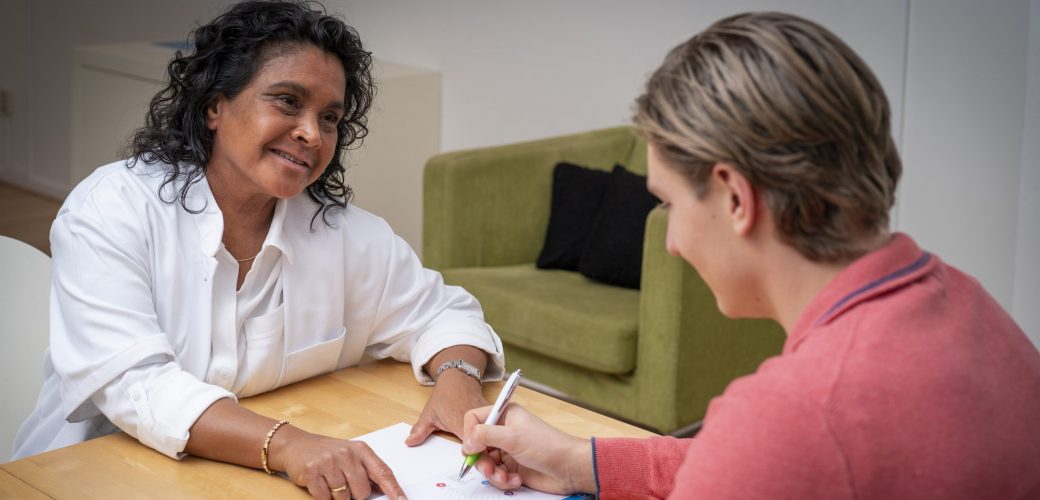Discussing the outcomes together

Discussing the outcomes together
The spider web has been designed to get people to think about their situation themselves and to help in a discussion about it. The question is how to do so effectively.
Characteristic of the alternative interview is that you interact with the other person, listen attentatively and help them to find their own solutions, whenever possible. Here, the professional care provider takes on a more coaching role.
Start the interview by asking open questions
During the interview, provide as much opportunity for thoughts and associations, as possible. These opportunities may provide unexpected leads. Open-ended questions will help, such as:
- How do you feel about it?
- How did you feel about answering the questions?
- Tell me about it
- What catches your eye?
- At this moment, what is important to you?
- What insights have you gained from looking at your spider web?
What best not to do
There may be a tendency to look primarily at the low scores in the spider web. But that is not the intention. Instead, the point is to pay attention to:
- What is important to the other person
- Where they get their strength and energy from
- What it is that they would like to pay more attention to, as this would help them to make their dreams come true
Listen attentatively
Wait and see what the impact will be of your open-ended questions. Sometimes, people start by talking about their lowest score. But it is equally common for people to start talking about unrelated things. For example, after years of treating a person, you find them telling you something you did not know yet, but which is important. It may be the key to someone’s problem or health question.
Bring some calm to the conversation
In conversations, we are often quick to avoid silences and to ask helpful questions to fill the void. However, instead of doing this, please, allow for those moments of silence. In those moments, people may more easily discover how they feel and think about things.
Make your own judgement secondary
The real expert who is able to make and implement the right decisions is sitting across from you. People often know very well what they need and what could help them. Trust their judgement.
Pause to consider who is doing the work
During the interview, at regular intervals, pause to consider who is doing the work: Am I doing it, or is it the person sitting across from me? In case of the latter, you are doing well.
Choose which direction the conversation should take
Over the course of your conversation, the right moment will present itself to look together at which steps could be taken. Remain in your coaching role, in this phase. Help the other person find their own way. You can, for example, ask solution-oriented questions. Others may like more structure to be provided and use the action wheel. Try out which approach suits you best.
Check whether a follow-up appointment is needed
Sometimes, a conversation reveals multiple issues. It may then be necessary to schedule a follow-up appointment to further explore one or more dimensions of the spider web. Or perhaps others need to become involved in a subsequent step — such as other health care professionals, welfare workers, family caregivers, volunteers or family members.